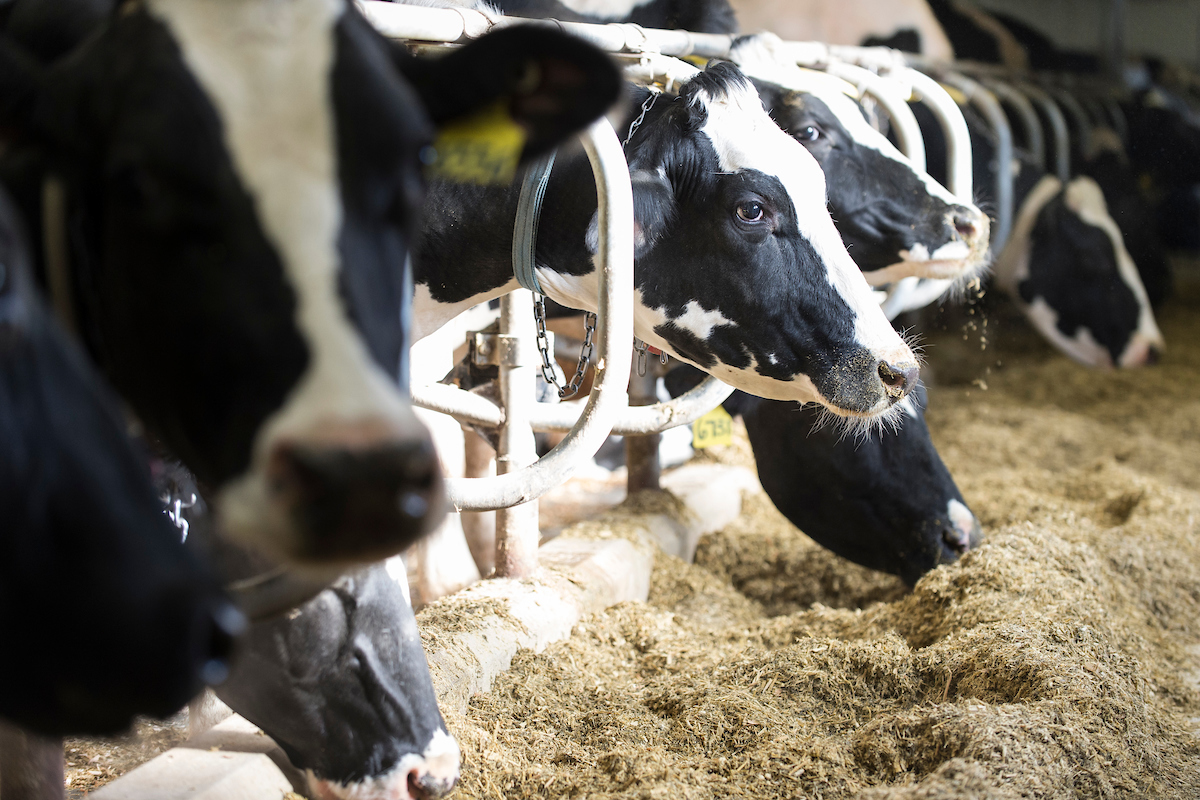Raw Milk Is Risky
UW researchers gauge the possibility of the H5N1 avian influenza virus infecting humans.
Exposure to raw milk infected with the currently circulating H5N1 avian influenza virus poses a real risk of infecting humans, but the virus may not spread very far or quickly to others, according to a set of laboratory experiments led by UW–Madison researchers.
“This relatively low risk is good news, since it means the virus is unlikely to easily infect others who aren’t exposed to raw infected milk,” says Yoshihiro Kawaoka, a UW–Madison professor of pathobiological sciences who led the study alongside Keith Poulsen ’00, DVM’04, PhD’12, director of the Wisconsin Veterinary Diagnostic Laboratory. They collaborated with researchers at Texas A&M University, Japan’s University of Shizuoka, and elsewhere.
Kawaoka cautions that the findings represent the behavior of the virus in mice and ferrets and may not account for the infection and evolution process in humans. In their experiments, the UW–Madison team found that mice can become ill with influenza after drinking even relatively small quantities of raw milk taken from an infected cow in New Mexico. They also tested the bovine H5N1 virus’s ability to spread through the air by placing ferrets infected with the virus near but out of physical contact with uninfected ferrets. There was some airborne transmissibility, but not a substantial level.
These results underscore the potential risks of consuming unpasteurized milk and possibly undercooked beef derived from infected cattle if the virus spreads widely among beef cattle.
“The H5N1 virus currently circulating in cattle has limited capacity to transmit in mammals,” Kawaoka says. “But we need to monitor and contain this virus to prevent its evolution to one that transmits well in humans.”
Published in the Fall 2024 issue





Comments
No comments posted yet.